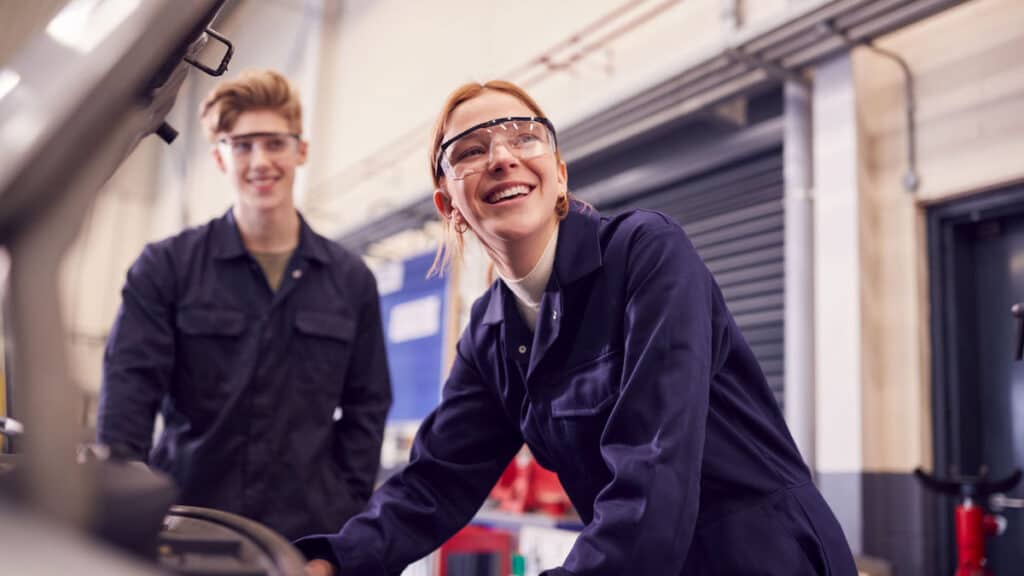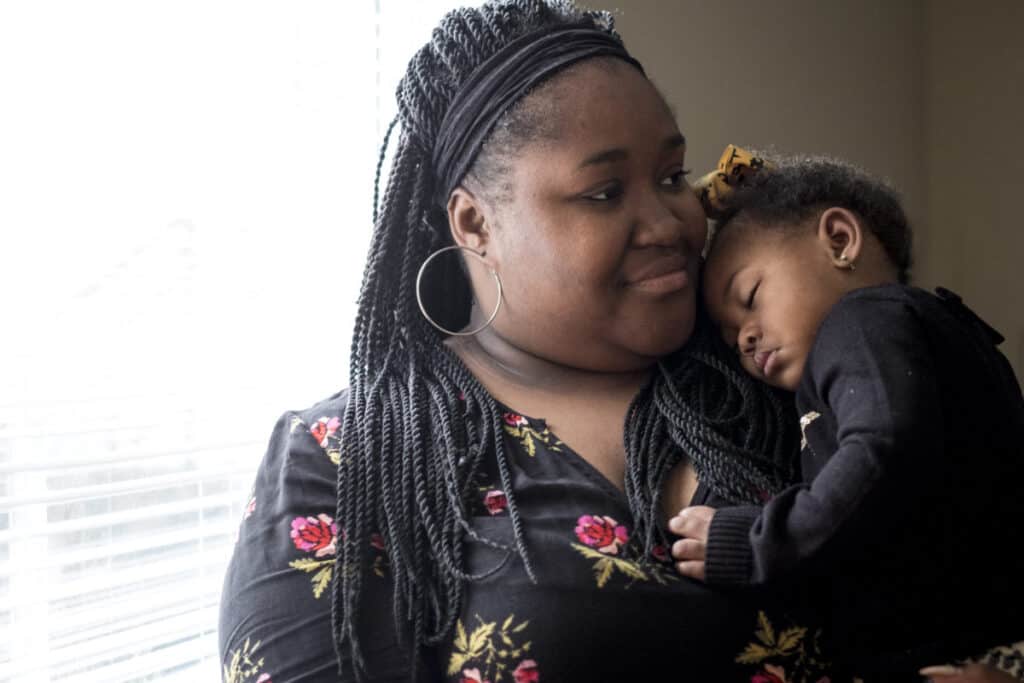Is your child hoping to get a job after high school? Finding a job–and doing it– can be intimidating for any teen. Job readiness for students with disabilities is even more important. But there are many ways your child can get support during high school to help them prepare for employment.
Your child’s IEP and Transition Plan should include specific supports that fit with their job goals.
Here are some examples:
- Pre-Employment Transition Services (Pre-ETS)
- Vocational Programs
- Internships or Work-Based Learning Experiences
You and your child should talk to your IEP team about your child’s job goals, what kind of skills they need, and what the school can offer. Make sure to ask about each of these options, and include them in the Transition Plan. Some programs will be through the school, and some will be run by your state’s vocational rehabilitation agency. The school should help you connect with them. Here’s how to connect with social services agencies for adults with disabilities.
Learn about technical training or different pathways your child can take through high school. Many high schools have courses or whole programs that train students for a specific career. (For example, the statewide Jumpstart graduation pathway in Louisiana.) Start in middle school, if possible, to learn about your school’s choices.
There are 3 kinds of programs that can help with job readiness for students with disabilities.
1. PreETS: Pre-Employment Transition Services
Pre-ETS is a program of services offered to all high school students who have IEPs. It offers special classes that can help students prepare for finding a job.
Your child can explore career options and learn the basic skills they need like interviewing, being responsible, and communicating well in a workplace. The program can also take your child to real worksites so they can see what certain jobs are like.
Here are some examples of things your child can learn:
- Soft Skills: being responsible and respectful in the workplace, and dressing and acting appropriately
- Job Readiness: how to write a good resume and cover letter, and how to do well in an interview
- Career Exploration: how to match their skills and interests with the best job options for them
2. Vocational Programs
Vocational programs offer services to help people get a job, and give them support while in a job. These services may be offered in your school or through your state’s vocational rehabilitation agency. Your child may continue to work with an outside vocational program after high school.
Vocational services include:
- Assessments of skills and interests
- Career counseling
- Work readiness training
- Training for specific jobs
- Advocacy skills to help employees communicate their needs
What a vocational service organization can do:
- Help explore careers, identify areas for training, build skills, and connect to opportunities
- Connect you with local employers who hire people with disabilities and have an accepting work environment
- Help you find supported employment. This might mean having a personal job coach, or a specific job placement with ongoing support
- Identify disability-friendly workplaces
3. Internships (“Work-Based Learning Experiences”)
Most schools offer help finding internships so your child can get work experience while in high school. Students who have done this in high school are more likely to find and keep a job after high school! Sometimes internship opportunities are part of the Pre-ETS services (see above).
Internships can help your child learn and practice important skills. These include job-specific skills and also “soft skills” that can help them get along well in a workplace and be successful in any job. Also called Work-Based Learning Experiences, these can also help your child explore different types of work, and get a feel for what it’s like to have work responsibilities.
How you can support your child in getting ready to work
- Talk with your child about their interests and what kind of jobs they would like to explore
- Ask your IEP team what vocational services may be helpful to your child, including internships
- Make sure these activities are in your child’s Transition Plan, and check that the IEP includes support that will help your child participate in them
Social skills and job readiness
Everyone has their own social style and different levels of comfort being in groups. This is fine, of course, and we should validate each kid’s way of interacting, even if it’s not “traditional”. But for those who are preparing to function well in a work environment, it can help to learn some skills to interact well with others in that environment. Social skills can be an important part of job readiness.
Social and communication skills can help a young worker get along with co-workers, work well in teams, and also help them advocate for themselves with bosses and supervisors. If your child could use some help with this, ask the IEP team about Social Skills groups or classes.
Job readiness for students with disabilities is an important skill, because having a job you like should be within reach for everyone! If you can help your child prepare while they have the support of their IEP team in high school, it will give them a better chance to find work that is meaningful to them and to their community.
Learn more:
- Prepare your child for the workforce with job skills training
- Connect with your local vocational rehabilitation programs.
******************************
LA:
In Louisiana, there are different Graduation Pathways for high school students. The Jump Start Career Pathway (also called TOPS Tech) trains your child for a specific type of job during high school, and prepares them for technical or community college. They’d graduate with a diploma and a “Credential” for a certain type of job.
Louisiana Rehabilitation Services (LRS) is the state agency that helps people with disabilities reach their job goals.
While Louisiana high schools offer vocational services themselves, they will also connect students with this agency. You can apply yourself, and your Transition Coordinator or others on the IEP team can help.
******************************
MA:
The Massachusetts Rehabilitation Commission (MRC) is the state agency that helps people with disabilities reach their job goals.
While Massachusetts high schools offer vocational services themselves, they will also connect students with this agency. You can apply yourself, and your Transition Coordinator or others on the IEP team can help.
Contact MRC at (800) 245-6543 or Voice/TDD: (800) 245-6543
To find other Vocational Rehab programs, use our Disability Service Finder (en español):
- Put in your zip code and choose Transition Services or Vocational Programs in the Education & Employment section.
Learn more about MRC and other local programs.
******************************



